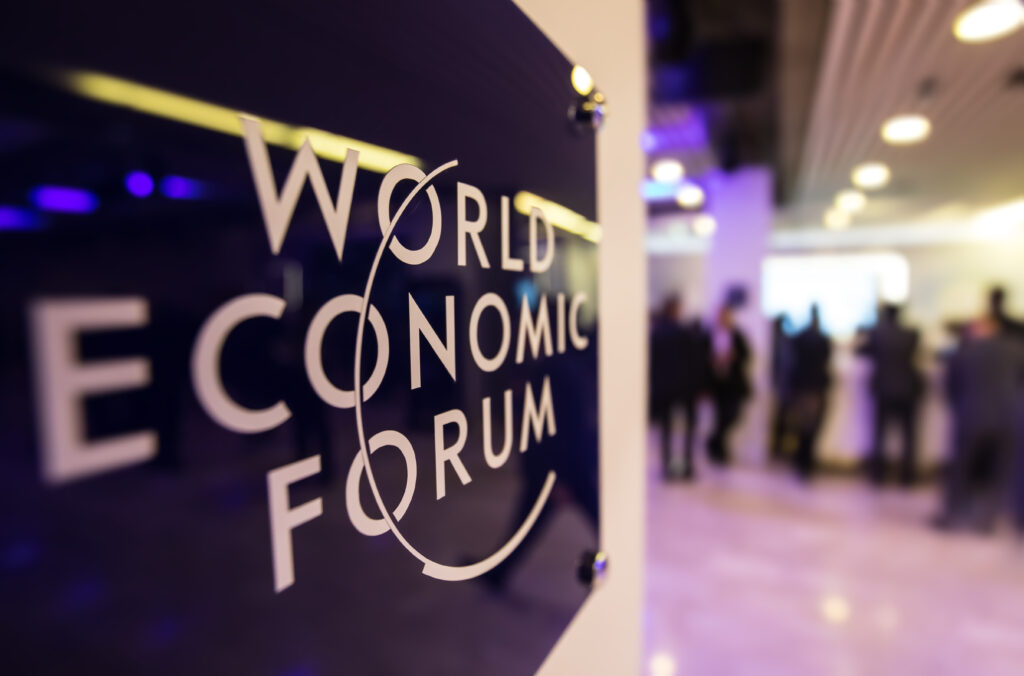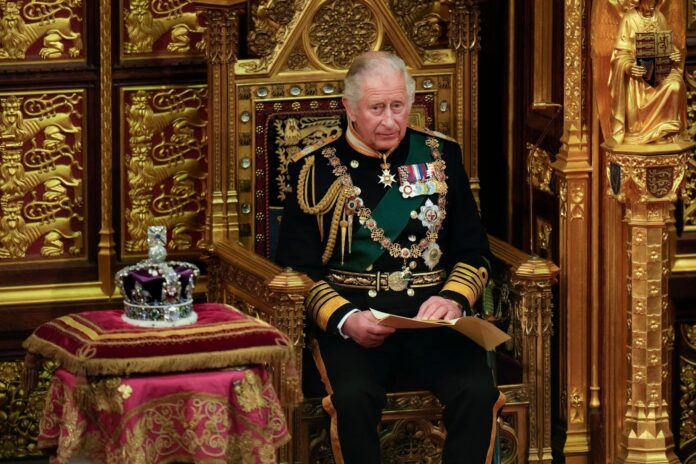Blogger Najm Al-Deen says supporters and critics of the monarchy have all missed one crucial fact – King Charles III is aggressively pushing a new form of disaster capitalism that poses a danger to the sovereignty of nations and threatens to impoverish us all.
With coronation celebrations ongoing, the patriotic Muslims lapping up the regal affair have overlooked an ominous reality about their new Commander-in-Chief.
Charles III is the royal face of the World Economic Forum’s “Great Reset.”
The Great Reset refers to the restructuring of the globe’s social, economic and political systems in pursuit of equitable growth, prosperity and sustainability, based on the UN SDGs (Sustainable Development Goals).
According to the WEF’s website, the initiative promises a future where new patterns of consumption, overhauls to infrastructure and transformations to geopolitical relations will upend the socio-economic contract.
And guess who marked its official launch? None other than our new sovereign.
So when we debate the pros and cons of the monarchy, even from an lslamic perspective, are we all talking our eye off the ball?
Subscribe to our newsletter and stay updated on the latest news and updates from around the Muslim world!
But first of all let’s me explain what the World Economic Forum is.
The WEF’s partners represent a cross-section of the global elite from the private and public sectors, including The Rockefeller Foundation and asset holding corporation BlackRock, who collectively sit at the centre of a power-nexus reshaping the world order.
This elite consensus decided without mandate that the twin threat of pandemics and climate change present a transformative opportunity to reimagine our world through a “new normal,” to which humanity would have to adjust.
As a key figurehead of the initiative, Charles has encouraged countries to “Build Back Better” and commit to this reset through implementing “Stakeholder Capitalism.”
Stakeholder Capitalism describes a system where governments are no longer the final arbiter of state policies.
Instead, unelected private corporations become de facto trustees of society, assuming responsibility to address the world’s social, economic and environmental challenges through macroeconomic cooperation and a multi-stakeholder model of global governance.
Charles believes this represents an overhaul to the corporate-governance model’s single-minded focus on profit accumulation.
But how legitimate is this capitalist makeover when the self-appointed trustees have no mandate to respond to multi-faceted challenges which is traditionally the domain of elected governments?
Multi-stakeholder governance
When you cut through the bluster, the Global Public Private Partnership headed by central banks, asset holding conglomerates, billionaire philanthropic foundations and a technocratic class will become the principal agenda setters for the British government.
As for elected officials, they will be junior partners and policy enablers tasked with enforcing the policies of unelected bureaucrats, including wealthy non-governmental agencies who wield immense leverage over the cabinets across the G20.
So with Britain’s sovereignty hollowed out by the wholesale capture of governments by transnational power brokers, how will the economic system under a multi-stakeholder model of governance operate?
In an age of spiralling inflation and unsustainable debt, the monetary system needs new plumbing if the concentrated capital of the wealthiest classes can continue to circulate.
Therefore, under the benevolent guise of net zero which will upend the modern industrial economy, Charles is taking the PR lead to expedite Britain’s monetary system towards the next stage of value extraction, which will pin the hope of recovery on an investment model known as ESG (Environmental, Social and Governance) investing.

The objective of ESG investing is to reorient private investments toward sustainable activities which contribute to social and environmental solutions and transformations, alongside a financial return.
These investments are the lynchpin of the stakeholder capitalism project and are connected to the UN 2030 SDGs which are a collection of interlinked global aspirations relating to poverty, climate change, healthcare and virtually every sphere of human activity, designed to be a blueprint to achieve a more sustainable future.
With the drive towards net zero taking a wrecking ball to the UK economy and projected to give rise to a disenfranchised underclass of blue and white collar workers, this could function as the poverty mining enterprise to fuel a new predatory investment infrastructure tied to ESG markets, an enticing asset class expected to reach trillions of dollars by the end of this decade.
The uncomfortable truth is that poverty is a cash windfall for hedge funds, offering stakeholder capitalists the perfect opportunity to circulate their capital in innovative ways by aligning global investments with the UN’s SDGs so that new markets can be built on the misery of millions suffering from a cost-of-living crisis, compounded by draconian net zero targets.
By railroading struggling Britons into a corporate value chain where they supply future labour demands conforming to the SDGs, Britain’s impoverished classes can be carefully managed for returns on investment.
As diabolical as it sounds, what Charles is advocating is the latest chapter in disaster capitalism, where multinational corporations redirect the flow of global capital by configuring asset allocations as ESG compliant.
What does this mean for the public?
In a nutshell this spells poverty for ordinary people like us.
If the brazen prediction from a recent WEF video is any indication of Britain’s economic future, then it’s safe to say that a highly stratified world is emerging. Apparently, by 2030 “You’ll own nothing. And you’ll be happy.”
But how might ownership become economically unfeasible?
With energy austerity in full swing, ESG investors are encouraging policymakers to implement comprehensive action plans for green space at local, national and international levels.
One of these initiatives involves the creation of carbon neutral smart cities, which pair cloud-based applications with a city’s physical infrastructure to improve energy distribution.
Having already championed eco-towns with sustainable farming and short commutes, it’s tempting to view Charles’ green stewardship as a philanthropic public service. But on closer inspection, sustainable urban centres will accelerate investor activity in ESG markets and diversify the portfolios of asset managers under the pretext of mitigating environmental challenges.
If Charles’ plant-based consumption model becomes embedded into smart city legislation, this could potentially displace livestock farming communities as agribusiness will be poised to absorb the market share of organic farmers, especially since the new King wants the food ecosystem to be redesigned through CRISPR gene-edited patented crops as part of the SDGs.
Furthermore, the steel, coal and raw material operations which are indispensable to the functioning of modern industrialised cities will be phased out, decimating small or medium-sized enterprises and eliminating “environmentally unsustainable” producers from economic activity.
In addition, hi-tech green spaces will hand over a significant portion of the cityscape to tech monopolies who can scan copious volumes of data for behavioural patterns measured against the SDGs, leading to full spectrum surveillance of entire populations who can be micromanaged as data commodities to feed ESG investors in future smart cities.
All for the unsubstantiated proposition that civilisation is nearing termination by 2050, unless we achieve that green nirvana which climate cultists like Charles call “net zero.”
It begs a question. If we will own nothing, who will own everything?
Neo-feudalism
What the British public fail to realise is that the King’s obsession with net zero means transitioning to a centrally planned circular economy.
A circular or “sharing” economy emphasises access over ownership, based on a two-tiered class system of owners and renters, rendering all products as services for more sustainable levels of consumption.
Not only does this deprive citizens of ownership rights, it cedes sovereignty of the global commons to those controlling international capital flows, who can hoover up tangible assets, including private property which homeowners will struggle to finance, owing to exorbitant costs associated with maintaining zero-emission homes.
Charles’ Great Reset will therefore involve a massive overhaul to urban planning, potentially allowing the globalist financiers funding these projects to shift the mandate on eminent domain, reverse the democratisation of land ownership and commence with a blueprint for the complete control of land, private property and resources, giving them unfettered control of the means of production, distribution and ownership.
Therefore, when we dig a little deeper into Charles’ greenwashing, we begin to see the contours of a highly predatory and exploitative economic system being installed under our watch, where the owners and controllers of global capital are granted a carte blanche to build a world they have long desired.




















